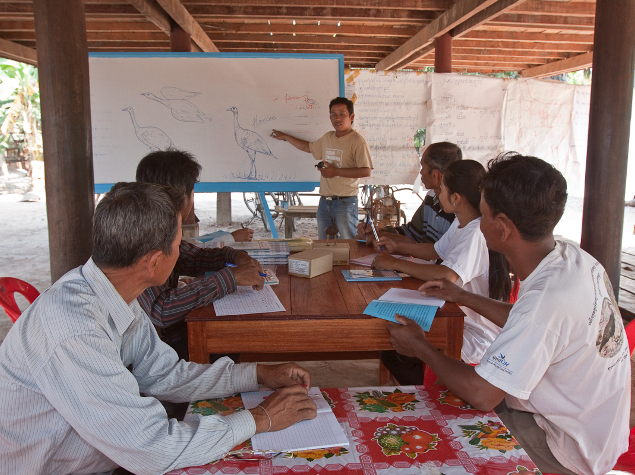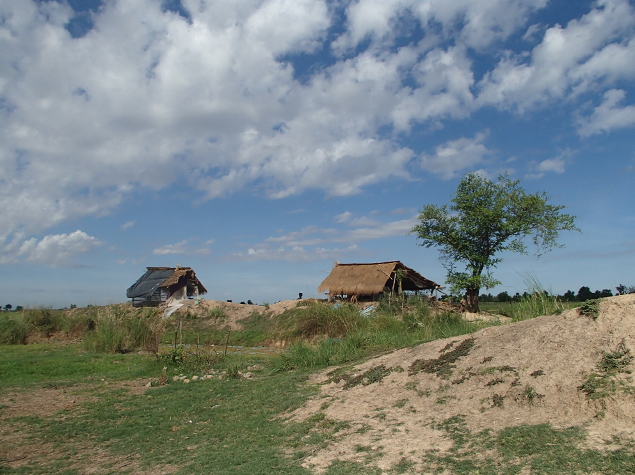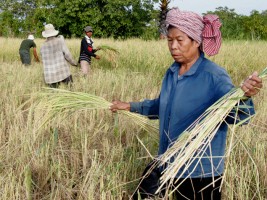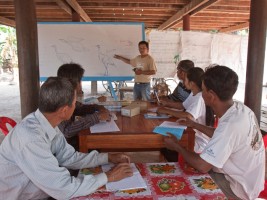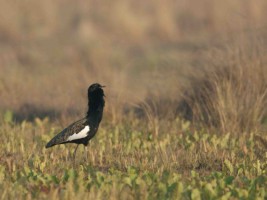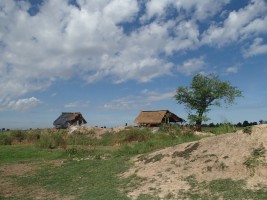Empowering rice farmers to manage a threatened grassland ecosystem
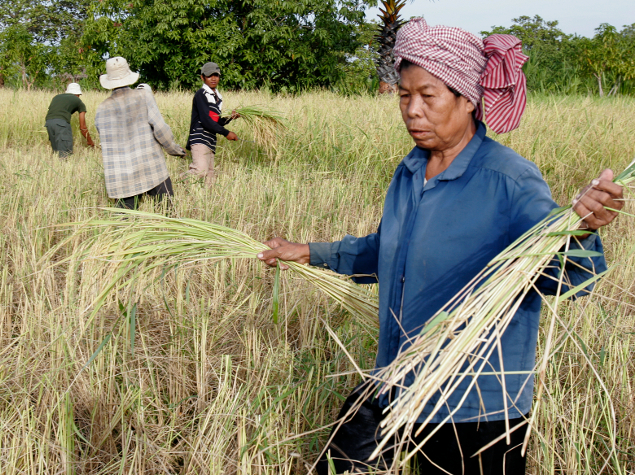
This project follows another one funded by Fondation Ensemble between February 2007 and March 2009 (See “Conserving Bengal Floricans and improving rural livelihoods around the Tonle Sap (in French)”).
Wildlife Conservation Society (WCS) has been working with local communities in the Tonle Sap floodplain for more than ten years. Local people depend on semi-natural habitats threatened by large-scale commercial dry-season rice. Communities need to secure land tenure, which in turn safeguards their access to rice growing and grazing lands, which are harvested in grassland areas as well as fish, and crickets. The diversity of livelihoods improves food security, reducing vulnerability to extreme events such as drought, which are likely to be exacerbated by climate change.
Previously, WCS established six Bengal Floricans Conservation Areas (BFCAs) in the Tonle Sap Floodplain. These are managed by Community Management Committees (CMCs) consisting of the local community members and the Forestry Administration. The aim now is to formalize the CMCs management role and to develop the zoning plan to ensure local people have secure tenure over their traditional land. This project phase will focus on the Chikreang and adjacent Stoung BFCA’s respectively in Siem Reap and Kampong Thom provinces.
Also, good practices in grassland management and land use plans will be incentivized through the use of Ibis Rice (a wildlife-friendly product developed in partnership with SMP). Under the Ibis Rice scheme, farmers receive a premium of at least 10% the market price for their rice if they abide by land-use plans and conditional wildlife-friendly farming regulations that are developed through a participatory process. SMP mills and markets the rice to hotels and supermarkets under the Ibis Rice brand.
Thus the main objective of this program is: “Through empowering rice farmers to manage the threatened Tonle Sap floodplain ecosystem improve and safeguard local livelihoods, preserve and enhance the habitat of the Critically Endangered Bengal Florican. “
In order to achieve this goal, our partner has set the following targets:
- Formalize the role of Community Management Committees (CMCs) in the management of Bengal Florican Conservation Areas (BFCAs). WCS will provide support and training to CMCs to prevent encroachment of their traditional land, formalize their role in managing BFCAs through management plans, formalize a zoning plan and monitor Bengal Florican population and habitat change annually.
- Incentivize best practice in grassland management through expanding Ibis Rice, a proven wildlife-friendly farming scheme, and protecting critical fish habitats. Local communities will be supported to establish and train at least ten Village Marketing Networks (VMNs). This will spread the Ibis-rice scheme to at least three additional villages. The VMN will be supported to develop land use plans through a Participatory Land Use Planning (PLUP) process. Training will be provided to VMNs to develop regulations for participating farmers. Seeds and training to farmers will be provided too. Also, with the oversight from WCS, conditional conservation agreements will be monitored by VMNs. Finally, the project aims to anticipate the fish population decline through the protection and management of habitats.
- Integrate research on large-scale processes, such as climate change and regional development, into management of the BFCAs. The project will gather local and regional plans and processes to assess the impact on local communities and on the Tonle Sap grassland ecosystem. WCS also aims to investigate on how climate change interacts with development plans, impacts local communities and will develop a number of alternative future development pathways. The result will be presented to local communities through CMCs and VMN to develop climate change adaptation measures. Meetings will take into account the needs of women, and will be held at an appropriate time and place to ensure their full participation.
Read the article “Cambodia’s Bengal Florican population declines, but conservation can save it”
Discover the testimony of Vong Phan, rice grower in the Tonle Sap lake area in Cambodia and the video of Soun Kanil’s (head of the Community Management Committee):

